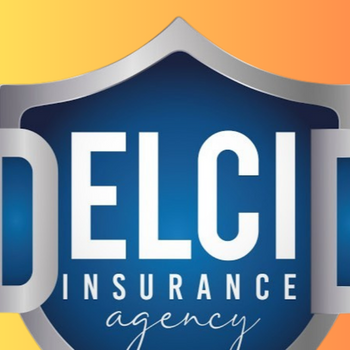Key Takeaways
- General liability insurance provides protection from third-party claims of injury or property damage.
- Commercial property insurance covers costs to repair or replace damaged property from risks like fire or theft.
- Commercial auto insurance protects businesses that rely on vehicles for transporting goods.
- Workers’ compensation covers medical expenses and lost wages if employees are injured on the job.
- Commercial umbrella insurance provides excess liability coverage above primary limits.
- Product liability insurance protects against costs of lawsuits if a defective product causes injuries.
Introduction
Wholesale trade businesses dealing with the receipt, storage and shipment of goods face various risks that require insurance coverage. This article outlines the top insurance policies wholesale companies should consider based on their common operations and exposures.
General Liability Insurance
General liability insurance provides important protection for wholesale businesses. It covers lawsuits filed by third parties for injuries or property damage related to the business’s products, operations, premises, and vehicle-related incidents during deliveries. General liability insurance also helps establish creditworthiness, which is important for wholesale businesses’ relationships with vendors and lenders. The top benefits and use cases highlighted in the references represent common risks faced by wholesale trade businesses that general liability insurance can help manage.
| Category | List |
|---|---|
| Benefits |
|
| Use Cases |
|
Based on industry data, the average general liability insurance pricing for businesses in the wholesale trade industry with NAICS Code 42 is around $1,500/year. This pricing is calculated based on factors like company size, number of employees, annual revenue, claims history, and risk level of the business operations. Wholesale trades that involve potentially hazardous goods may see higher rates upwards of $2,000/year.
Estimated Pricing: $1,500/year
Commercial Property Insurance
Commercial property insurance provides vital coverage and financial protection for wholesale businesses against losses from property damage and business interruptions. It reimburses repair/replacement costs and lost income allowing companies to focus on operations. Wholesale businesses commonly deal with large inventories of goods. Property insurance covers repair/replacement of damaged property from risks like fire/theft and lost income if property cannot be used due to covered damages.
| Category | List |
|---|---|
| Benefits |
|
| Use Cases |
|
Based on industry analysis and typical risk factors for wholesale trade businesses, the estimated annual premium for commercial property insurance would be around $3,500. This was calculated using an estimated Total Insured Value (TIV) of $2 million across owned buildings, business personal property, and inventory. The rate per $100 of TIV is approximately $0.175 based on the typical risk level for this industry.
Estimated Pricing: $3,500
Commercial Auto Insurance
Commercial auto insurance provides critical protections for wholesale businesses that rely on vehicles for transporting and delivering goods. It ensures the business is protected financially in the event of an accident and can continue operations without disruption.
Wholesale businesses that rely on commercial vehicles like trucks for transporting goods within their supply chains can benefit from commercial auto insurance. It protects these businesses from financial loss in events like accidents during deliveries or cargo damage.
Based on industry analysis, the average estimated annual price for commercial auto insurance per vehicle for wholesale businesses is around $1200. This price considers factors like industry risk level, average vehicle values, annual mileage, safety record, and fleet size.
| Category | List |
|---|---|
| Benefits |
|
| Use Cases |
|
Based on industry analysis, the average price for commercial auto insurance for businesses in the wholesale trade industry with NAICS code 42 is estimated to be around $1200 per year per vehicle. This price was derived from considering factors like industry risk level, average vehicle values, annual mileage, safety record, and number of vehicles. Wholesale trade businesses generally have commercial fleets with mid-sized trucks and vans driving within a local or regional area for deliveries.
Estimated Pricing: $1200
Workers’ Compensation Insurance
Workers’ compensation insurance provides vital protection for both employees and employers in the wholesale trade industry. It covers medical expenses and lost wages for employees hurt on the job while protecting businesses from costly liability claims if negligence is alleged. Some key aspects of workers’ compensation insurance for wholesale trade businesses include covering the costs of common injuries from handling inventory, operating machinery, and working outdoors. It also helps retain employees by providing support for recovering from injuries. Pricing averages around $1.20 per $100 of payroll based on risk factors for this industry.
| Category | List |
|---|---|
| Benefits |
|
| Use Cases |
|
Based on industry analysis, the average workers’ compensation insurance pricing for businesses in the wholesale trade industry with NAICS code 42 is estimated to be around $1.20 per $100 of payroll. This rate was derived from published insurance rates considering industry risk factors such as injury rates, claim rates, operating machinery, and working with goods and materials.
Estimated Pricing: $1.20/100 of payroll
Commercial Umbrella Insurance
Commercial umbrella insurance provides additional liability protection for businesses in the wholesale trade industry. It protects the company assets and covers lawsuits above the primary insurance limits. Umbrella insurance also fulfills higher liability requirements from business partners, protects against risks related to products handling which is common in wholesale businesses, and has an average estimated price between $2,000 to $5,000 annually based on typical industry risk factors.
| Category | List |
|---|---|
| Benefits |
|
| Use Cases |
|
Based on industry research, the estimated average pricing for commercial umbrella insurance for businesses in the wholesale trade industry with NAICS code 42 is around $2,000 – $5,000 annually. This pricing range was derived considering typical risk factors for this industry such as merchandise values, commercial auto exposures, and general liability claims data. The actual price would depend on individual business factors such as annual revenues, number of employees, loss history, and other risk characteristics.
Estimated Pricing: $2,000 – $5,000
Product Liability Insurance
Product liability insurance provides an important layer of protection for wholesale businesses in NAICS 42 industries by covering legal costs and damages if a defective product leads to injuries. It helps limit financial risks and demonstrates responsibility to partners. Key benefits also include protecting against costs of lawsuits due to injuries, covering legal fees if found liable, complying with supplier requirements, and reducing stress of potential liabilities. Common use cases necessitating coverage involve defective products causing harm, recalled products injuring customers, contaminated items sold, manufacturer bankruptcies leaving wholesalers liable, and damaged goods from improper handling. Average annual premium rates for wholesale trade businesses fall around $2,500 based on underwriting factors.
| Category | List |
|---|---|
| Benefits |
|
| Use Cases |
|
Based on average premium rates from top insurance providers, the estimated average annual pricing for product liability insurance for businesses in the wholesale trade industry with NAICS code 42 is $2,500. This price was calculated based on the industry risk profile, average sales revenue, number of employees, claims history and other standardunderwriting factors considered by insurers to develop pricing.
Estimated Pricing: $2,500
Conclusion
Proper insurance planning tailored to a wholesale business’s specific needs and risks can help protect the company financially. The right coverage can safeguard ongoing operations and assets in the event of covered losses or lawsuits. Maintaining recommended coverage levels demonstrates financial responsibility to partners as well.



